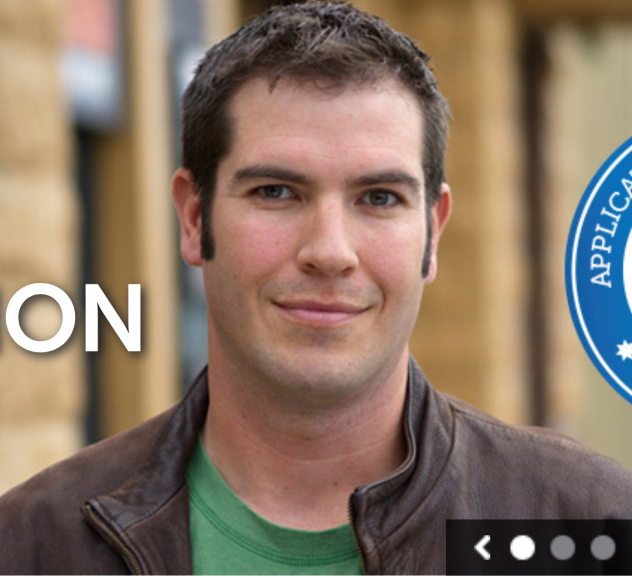 Have you ever made a new year’s resolution to improve your fitness and haven’t done so well? Or even know where to start?
Have you ever made a new year’s resolution to improve your fitness and haven’t done so well? Or even know where to start?
Parkrun could be the answer! Continue reading Parkrun
Want to hear what the student leaders say on a particular topic? Browse all the categories here.
Find out who our student leaders are, including all past and present contributors. Click here.
 Have you ever made a new year’s resolution to improve your fitness and haven’t done so well? Or even know where to start?
Have you ever made a new year’s resolution to improve your fitness and haven’t done so well? Or even know where to start?
Parkrun could be the answer! Continue reading Parkrun
Is the due date coming soon? No confidence with your assignment? Many students will face this problem during their study at university. Fortunately, technology makes our life much easier, even in writing. There are many grammar check websites that are available online, which assist you to check your work and give you some suggestions. Sounds great, doesn’t it? Continue reading Polish Your Work Before You Hand It In
 To start off, I am not saying that I am a communications champion or anything like that. In fact, being a mature age student my mind is boggled by the way that people these days communicate with each other on social media. When I was growing up we rode our bikes to our friend’s house and knocked on the door to see if they were home, or if allowed we would make a phone call to see if they were home. To communicate with someone long distance we would write a letter because the cost of a phone call could cripple the economy. Continue reading Communication with Lecturers and Academic Staff
To start off, I am not saying that I am a communications champion or anything like that. In fact, being a mature age student my mind is boggled by the way that people these days communicate with each other on social media. When I was growing up we rode our bikes to our friend’s house and knocked on the door to see if they were home, or if allowed we would make a phone call to see if they were home. To communicate with someone long distance we would write a letter because the cost of a phone call could cripple the economy. Continue reading Communication with Lecturers and Academic Staff
So after hours of organising I have finally got the children to sit down in front of the TV to watch their favourite show on Netflix. They have snacks, drinks and their favourite teddy bears. I should be able to get at least an hour out of them to finish working on my assignment that’s due at the end of the week, right…? WRONG! No sooner than I sit down and turn the computer on, I hear the dreaded “Muumm, Nate’s hitting me!” (insert frustrated face). I go down and sit them on separate sides of the couch and promise that if I can have just an hour to do some work, I will take them outside to play afterwards.
I know it’s not ideal, but bribery is one of the only ways I can get some time to work. Having 3 children ranging from 2 to 7 years old they are not at the point where they understand deadlines and “mummy has an assignment due”. So in an attempt to get a little time to myself, I resort to bribing them with TV, food, drinks and some play time afterwards. I know — bad parenting moment — but as a student, mother, wife, housekeeper and taxi (just to name a few of my roles) there never seems to be enough hours in the day to get what I need to get done.
Anyway, back to trying to steal an hour to do some homework. Did this end well? Did I get any work done? Did the children sit down and watch TV as planned? The answer to all of these is: NO! In between the dirty nappy, the spilt drink, the fighting and the crying, I achieved nothing. NOTHING!

So here’s my advice on trying to study with children: try and plan your week so that you get as much study done when you’re not home. Then when you are at home you can focus on being mummy and the many other roles you play. It is ok to say that this is important to me and I need some time without the kids to get it done. Ask your partner, your family and friends and, if finances permit, get a babysitter or try the kids in day care. In an effort to keep these two role separate on the days I am at Uni, I stay later and get my husband to do the school/day care pick up. This allows me time after my classes to get my study done. Then when I get home the kids can have my complete attention as I am not distracted with what homework I have to do. During the busy times when assessments are due I may even come out to the Uni on the weekends for a few hours and I achieve a lot more in a couple of hours than I would all day at home trying to bribe the kids.
If you do find yourself in the position of having to study while you’re at home with the kids I have found that the kids are happier to allow me a few minutes to myself if I break it into smaller intervals. Start by asking them to do an activity or watch a show for 20 minutes while you work and then you will come and play with them. If you continue this cycle you will at least reduce the stress on yourself.
Remember that it is ok to put yourself first sometimes, and don’t allow the parental guilt to creep in. You are important and what you are trying to achieve is important as well. Think of the positive role modelling you are doing at times when you feel you have been away from the children too much. Remember: it is the quality, not the quantity, of time you spend with the kids.
– Bonnie
 So I’m sure everyone knows by now that FedUni’s got a new campus at Berwick, or as everyone calls it: The B-wick. (Ok, so maybe no-one calls it that…yet. It’s pretty catchy, it’s got a nice ring to it, it’s gonna catch on, trust me). FedUni picked up the campus last year as part of Monash’s fire sale of campuses.
So I’m sure everyone knows by now that FedUni’s got a new campus at Berwick, or as everyone calls it: The B-wick. (Ok, so maybe no-one calls it that…yet. It’s pretty catchy, it’s got a nice ring to it, it’s gonna catch on, trust me). FedUni picked up the campus last year as part of Monash’s fire sale of campuses.
As far as I’m concerned, they got a pretty good deal. This place is pretty nice, even if it is just for first-years at this point. Want to know more? Well, let me lay it out so you can play it out. Continue reading The Low Down on The B-wick (or Berwick Campus)
 Wondering why things happened the way they did when clearly there is another option? Here are 5 common Harry Potter ‘plotholes’ debunked.
Wondering why things happened the way they did when clearly there is another option? Here are 5 common Harry Potter ‘plotholes’ debunked.
1. Why was the time turner not used to save countless lives instead of just Buckbeaks? Well supposedly going more than a few hours in the past is irreparably catastrophic, thus Harry can’t save his parents. But what about more recent deaths? Well the time turner is susceptible to paradoxes. This means that if Harry went back to ‘move’ Sirius out of the way of the killing curse in HP5, Sirius would live and thus there be no reason for Harry to come back in the first place to save him. Yet for Hermione to go to another class (the time turners original purpose for her), is not changing the events that unfold to such a massive degree. “Mysterious thing, Time. Powerful, and when meddled with, dangerous.” Continue reading Harry Potter Plotholes Debunked! And 18 Things You May Not Know About Harry Potter.
 The start of semester is now here, for some of you this is a brand new exciting adventure, for others it is a slightly agonising process of dragging yourself back into university mode after the lovely, yet lengthy summer holidays. Whichever group you belong to, the university is going to be a bit hectic, especially during the first few weeks.
The start of semester is now here, for some of you this is a brand new exciting adventure, for others it is a slightly agonising process of dragging yourself back into university mode after the lovely, yet lengthy summer holidays. Whichever group you belong to, the university is going to be a bit hectic, especially during the first few weeks.

New students will be running around trying to find their feet, struggling to find classes, teachers and where to get a decent coffee. Old students will most likely be trying to avoid the busyness, and groaning at the excessive amount of time it has taken them to find a car park, leaving them precious minutes to dash to their lecture.

Both groups will possibly be feeling quite overwhelmed, and a little stressed out. It is important at the start of the semester to get a little organised — make a game plan for your studies, and how that is going to work in with your social and work life. You need to know what the important things to be aware of are, and who to talk to if you are starting to struggle.

The most important thing to remember is if you are struggling, or have any queries, or concerns: ask. It doesn’t matter if you are a new student, or a returning student. The best thing to do if you don’t know something, are unsure, or just need to discuss something is to ask, and talk to someone about things.

No one ever really jumps for joy when they hear the phrase ‘time management’, but it is an important part of succeeding at university, and not only university but life in general. It doesn’t have to be the horrendous task that it is made out to be — you can start out small, buy a diary and write down when all your assessments are due, and block out deliberate time to work on that task. Unfortunately, assessments don’t write themselves. Remember that time is the currency of life, so spend it wisely!

Another important thing to keep in mind at university is the need to maintain a social life. Being a university student should also be a social experience. You can meet new people and form friendships with individuals who have similar interests to you. Don’t be afraid to get involved! Become part of the university community, and I guarantee it will make your whole university experience that much more enjoyable!

This leads me to my final piece of advice: be aware of yourself. Self-care is vital. Know your limits, and make sure that you take care of yourself. If you start to struggle with this at any point, we have numerous services available to assist you. That is what they are here for so don’t feel bad for accessing them — everyone needs assistance from time to time.

There are these services and more:
Whatever your concerns, we are here to help you! Don’t be afraid to ask. I promise we don’t bite, and are quite friendly and eager to assist you in achieving your university goals!

Good luck in your studies!
Angel
 After over seven years of sitting exams, I thought I’d share my experience through little tips and tricks you may find useful!
After over seven years of sitting exams, I thought I’d share my experience through little tips and tricks you may find useful!
1. Study. It may sound simple, and I can hear you thinking “duhhhh” but the best way to be the least stressed before an exam is to prepare correctly! My tips: Continue reading Bella’s 10 Helpful Tips to Success: Sitting an Exam with Less Stress!
I am a fourth year biomedical science student therefore this means I am completing honours at FedUni this year.
But what is honours and a PhD?
Honours is a fourth year that has a research focus. It is generally completed by students who did very well in their undergrad and are interested in getting to the research field after graduation. Some degrees have honours embedded in them, such as Engineering, and therefore must be completed to be awarded your degree. It can also be undertaken to improve a student’s employability or experience.
A PhD is a 3-4 year long research position at the university. When this is completed, you are awarded with the Doctor of Philosophy (hence PhD) in your area of research, such as science, information technology, business, etc. Most lecturers and course coordinators have a PhD showing that they have extensive knowledge in their field.
After graduation, I couldn’t decide what to do or be, so I thought I’d give research a try. I have always been told two things to consider when undertaking a research project. These are: only take on honours or a PhD if you like the project and like the supervisor.
Good project + good supervisor = good research year
This seemed straightforward, so this is exactly what I did when signing up to honours. I love my project, especially its potential to contribute to lowering lung cancer mortality. I also really like my supervisor. His approach to research is very optimistic yet calculated. This matched with his passion for making positive change is infectious. With this perfect pair what could go wrong?
Well something must have been missing from this equation, because I have struggled more this year than I did in all of my undergrad. This is not unheard of, as honours is a tough year, which is why they only let high-achieving students take it on. But I found my biggest problem has been finding motivation to continue. This was a surprise, as finding motivation has never been a struggle of mine. I love learning from studying at uni, like learning about the diseases that affect the human body, or learning new skills like downhill skiing (super fun but tricky without lessons).

For a while I was confused why I was having such trouble, considering I still loved my project and supervisor. What I never considered was that there was a third factor to the equation: you have to like research itself to enjoy honours. This, of course, is hard to learn going into honours, so if you get a chance do to a research project in your undergrad or some work experience in research, do it and let it help you make the decision to continue with research or not. I have created the ‘should I do honours’ pyramid (below) for your convenience and would like to put it forward for you to consider before signing yourself up to honours or PhD.

What I have learnt about honours this year is that it is hard work but can be very rewarding. If you are interested in adding knowledge to your field and improving today’s technology to bring us into the future, research might be the way to go. But please consider the ‘should I do honours’ pyramid.
I have stuck to it and am very proud of my dedication to my goals and persistence to see this year through. This year has definitely tested me but also definitely allowed me to grow my personal skills. Looking back, I do not regret doing honours and if I could change my decision to undertake it, I wouldn’t. It’s experience like this that allows me to learn what I want to do and how I want to contribute to society. I will never wonder what it would be like to do research because I have learnt and know it’s not for me right now.
I wish you the best of luck with all these kinds of decisions!
– Bella
(AKA one of the cheery faces at the Mt Helen ASK desk 2016).
Images from:
 First of all, let me set the scene. You have arrived at university for your degree and are sitting in a lecture on your very first day. Your books have never been opened and your pens require you to frantically scribble to get the ink going, or maybe the shake of the wrist, etc. Whatever your preferred way of getting the damn pen working is. But that’s not the main issue, so I will move on.
First of all, let me set the scene. You have arrived at university for your degree and are sitting in a lecture on your very first day. Your books have never been opened and your pens require you to frantically scribble to get the ink going, or maybe the shake of the wrist, etc. Whatever your preferred way of getting the damn pen working is. But that’s not the main issue, so I will move on.
In the lecture you are confronted with a ‘doctor’ or ‘double-doctor’ or an expert in their field and before you know it you might be half way through the lecture and the dots just aren’t adding up and you would like some clarification on some aspects of the lecture. That is when the nerves come flying in and the self-doubt, because what if you ask a question and you are the only one who doesn’t understand?
After the millions of self-doubt thoughts are in your head, you need to realise that you are not alone. The chances are that most people in the lecturer are feeling the same way as you and are in the same boat and don’t want to ask the question either. So as you are paying for your degree, you really need to take charge and ask the questions, because if it helps you understand the topic then it is helping you get your degree.
From my experience, most lecturers love being asked questions for a few reasons. It shows the lecturer that you are paying attention and are not on Facebook or Google. It also shows that you care about your studies and want to really understand the content being delivered. These two aspects of paying attention and caring are really good qualities to have and could come in handy if something happens and you need an extension and the lecturer knows you have these qualities.
I personally ask questions in all my lectures and I find that this either confirms that I am on the right track or bumps me back on the right track if my thinking was a little off. Lecturers are people too and they want to give you the information you need to be able to do well in the class, and if this is not the case then ask the questions that need to be asked. But always be mindful of when a lecturer is short on time and says please hold all questions to the end.
So get out there, ask questions and even challenge lecturers, as this is the way we all learn and you will benefit from the experience.
– Hayden